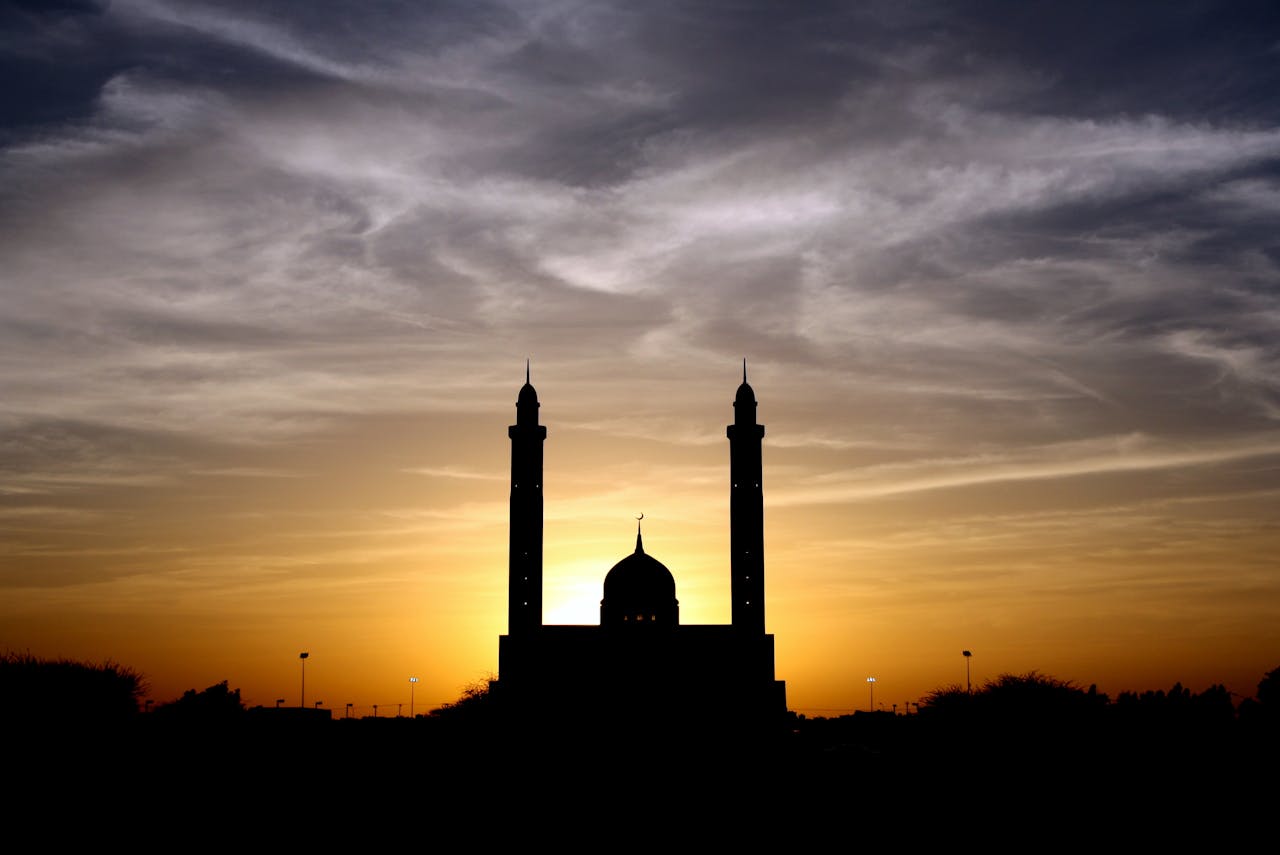Islam is one of the world’s major religions, followed by more than two billion people across the globe. The word Islam (الإسلام) comes from the Arabic root “س ل م” (S-L-M) which means peace, submission, and surrender. In essence, Islam is about submitting oneself to the will of Allah (الله), the One God, and finding peace through this surrender. A Muslim (مسلم) is the one who chooses to follow this path of faith. If you are new to learning about Islam, this guide will help you understand its core beliefs, practices, and values in a simple way.
1. Belief in One God (Tawheed)
The foundation of Islam is the belief in the Oneness of God. Muslims believe that Allah is the Creator of the universe, the Sustainer of all life, and the One without partners. The declaration of faith, known as the Shahada (الشهادة), states:
“أشهد أن لا إله إلا الله وأشهد أن محمداً رسول الله”
(Ashhadu an la ilaha illa Allah, wa ashhadu anna Muhammadan rasul Allah)
Translation: I bear witness that there is no god but Allah, and I bear witness that Muhammad is the Messenger of Allah.
This simple yet powerful statement makes one a Muslim. It emphasizes the absolute unity of God and the role of Prophet Muhammad ﷺ as His final messenger.
2. The Prophets and Revelations
Muslims believe in all the prophets sent by Allah throughout history, including Adam, Noah, Abraham, Moses, Jesus, and Muhammad (peace be upon them all). The final revelation is the Qur’an (القرآن الكريم), which Muslims believe to be the unchanged word of Allah, revealed in Arabic over 1,400 years ago.
The Qur’an is not just a book of laws or history; it is a guide for life. Allah says in the Qur’an:
“ذَٰلِكَ الْكِتَابُ لَا رَيْبَ ۛ فِيهِ ۛ هُدًى لِّلْمُتَّقِينَ”
(Dhalika al-kitabu la rayba fihi hudan lil-muttaqeen)
Translation: This is the Book about which there is no doubt, a guidance for those conscious of Allah. (Qur’an 2:2)
3. The Five Pillars of Islam
To understand Islam, one must learn its five core acts of worship known as the Five Pillars (أركان الإسلام). These pillars shape the daily life of a Muslim and strengthen the connection with Allah.
- Shahada (Faith): Declaring belief in Allah and His Messenger.
- Salah (Prayer/الصلاة): Muslims pray five times a day facing Makkah. Each prayer includes recitation from the Qur’an in Arabic, bowing, and prostrating before Allah.
- Zakat (Charity/الزكاة): Giving 2.5% of wealth annually to help the poor and needy.
- Sawm (Fasting/الصيام): During Ramadan, Muslims fast from dawn to sunset, avoiding food, drink, and sinful behavior.
- Hajj (Pilgrimage/الحج): Once in a lifetime, if physically and financially able, Muslims visit the holy city of Makkah to perform pilgrimage rituals.
These practices are not just rituals but spiritual exercises that purify the heart and bring Muslims closer to their Creator.
4. Daily Life of a Muslim
Islam is not just a religion practiced on special occasions; it is a way of life. From the way a Muslim eats and greets others to the way they conduct business, everything is guided by faith. For example, Muslims begin tasks by saying “بسم الله الرحمن الرحيم” (Bismillah ar-Rahman ar-Raheem), meaning In the name of Allah, the Most Merciful, the Most Compassionate.
Respect for parents, kindness to neighbors, honesty in trade, and care for the environment are all important Islamic values. Prophet Muhammad ﷺ said: “The best among you are those who have the best character and manners.”
5. The Concept of Worship in Islam
In Islam, worship (‘Ibadah/العبادة) is not limited to prayer and fasting. Every good act done with sincere intention can be considered worship. Smiling at someone, feeding the poor, or even removing harm from the road can all be acts of worship. Allah says in the Qur’an:
“وما خلقت الجن والإنس إلا ليعبدون”
(Wa ma khalaqtu al-jinna wal-insa illa liya’budoon)
Translation: And I did not create the jinn and mankind except to worship Me. (Qur’an 51:56)
6. The Importance of Community (Ummah)
Muslims belong to a global community known as the Ummah (الأمة). Regardless of race, nationality, or language, all Muslims are brothers and sisters in faith. The Friday prayer (Salat al-Jumu’ah/صلاة الجمعة) is a weekly gathering where Muslims come together to worship, listen to sermons, and strengthen community bonds.
This unity was beautifully described by Prophet Muhammad ﷺ: “The believers, in their love, mercy, and compassion for one another, are like one body; if one part suffers, the whole body feels pain.”
7. Islam and Peace
The very word Islam shares its root with the word Salaam (سلام), meaning peace. Islam emphasizes peace with oneself, peace with others, and peace with the Creator. Violence and oppression are forbidden, while justice, forgiveness, and compassion are highly valued.
Allah says:
“ادخلوا في السلم كافة”
(Udkhulu fi al-silmi kaffah)
Translation: Enter into peace, completely. (Qur’an 2:208)
8. Common Questions for Beginners
- Is Islam only for Arabs?
No, Islam is for all humanity. Today, the majority of Muslims are non-Arabs. - Do Muslims worship Prophet Muhammad ﷺ?
No, Muslims worship only Allah. Prophet Muhammad is a messenger and role model. - Why do Muslims pray in Arabic?
Arabic preserves the original message of the Qur’an, ensuring unity in worship across the globe.
9. Learning Islam Step by Step
For someone new, Islam may seem overwhelming, but it is important to learn step by step. Start with understanding belief in Allah, then gradually learn about prayer and other practices. Many new Muslims begin with short chapters of the Qur’an like Surah Al-Fatihah (سورة الفاتحة), which is recited in every prayer.
Islam is a complete way of life built on faith, compassion, and peace. It teaches humans to connect with Allah, serve humanity, and live with purpose. For beginners, the key is to start with the basics: belief in One God, prayer, and good character. As Prophet Muhammad ﷺ said: “The most beloved deeds to Allah are those done consistently, even if they are small.”
So, whether you are curious about Islam or considering embracing it, take small steps, seek knowledge, and open your heart to the beauty of this faith.
“اللهم اهدنا الصراط المستقيم”
(Allahumma ihdina as-sirata al-mustaqeem)
Translation: O Allah, guide us to the straight path.




